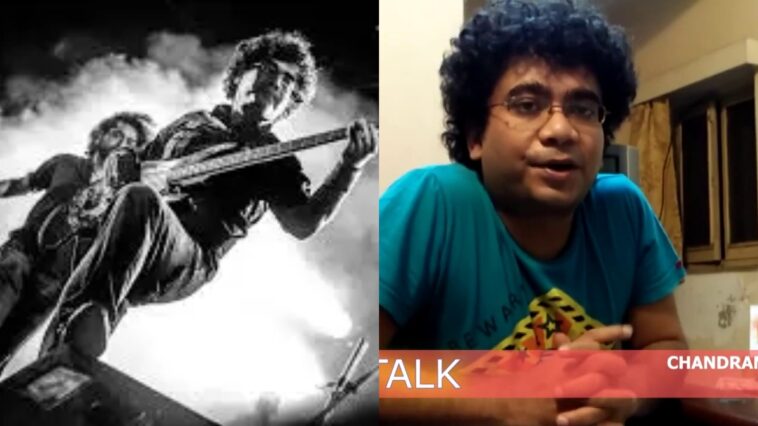Chandramouli Biswas, an influential figure in the Bengali rock music scene and a former bassist of the legendary band Fossils, was found dead at his Kolkata residence on January 12, 2025. The 48-year-old musician’s passing has left the music world in shock, with fans and fellow artists mourning the untimely loss of a man who played a pivotal role in shaping the genre.
Early Life and Passion for Music
Born on June 5, 1976, Chandramouli Biswas showed an early interest in music, often experimenting with different instruments. Raised in Kolkata, his affinity for rhythm and melody became evident during his school days, where he participated in numerous musical performances. Despite pursuing engineering initially, Biswas realized that his true passion lay in music. He made the bold decision to abandon his studies to immerse himself in the burgeoning rock music scene of Kolkata.
His decision wasn’t without challenges. The early 2000s were a transformative period for the Bengali music industry, with bands like Fossils and Cactus pioneering the rock genre in the region. Biswas’s technical skills and creative energy made him a sought-after talent, eventually leading to his association with Fossils in 2000.
Chandramouli Biswas and Fossils: A Dynamic Partnership
Fossils, led by the charismatic Rupam Islam, was already gaining traction as a unique voice in Bengali music. Chandramouli Biswas joined the band as a guitarist before eventually taking over the role of bassist. His contributions to Fossils’ distinctive sound were significant, as he brought a unique blend of classical training and modern rock sensibilities.
The band’s success soared during his tenure, with albums like Fossils (2002), Fossils 2 (2004), and Mission F (2007) becoming cornerstones of Bengali rock. Biswas’s skillful basslines added depth to the band’s tracks, earning him a dedicated fan following. His presence on stage, often understated yet magnetic, resonated with audiences across India and beyond.
However, by 2018, Biswas decided to part ways with the band due to health concerns. His departure marked the end of an era, though he remained an influential figure in the music community.
Life After Fossils
After leaving Fossils, Biswas continued to explore his musical passions. He collaborated with other bands, including Golok and Jomb Kage Kontrol, experimenting with various styles and genres. These projects highlighted his versatility and commitment to pushing the boundaries of Bengali music.
He also dedicated time to mentoring young musicians, sharing his knowledge and experience with the next generation. His former bandmates often spoke of his generosity and encouragement, qualities that endeared him to the music community.
Despite his public successes, close friends and collaborators observed signs of personal struggle. Biswas, like many artists, wrestled with the pressures of fame and the challenges of sustaining creativity in a demanding industry.
Chandramouli Biswas Age: A Life Cut Short
At the time of his passing, Chandramouli Biswas was 48 years old. His untimely death has left fans, friends, and colleagues in shock, prompting reflections on the fragility of mental health in the artistic community.
The Tragic Circumstances of His Death
On January 12, 2025, Chandramouli Biswas was discovered hanging in his Wellington-area apartment in Kolkata. He had been living there with his parents, who were reportedly attending a social event at the time of his death. Concerned by his unresponsiveness, a bandmate visited his home and found his lifeless body. The authorities were promptly informed, and the body was sent for post-mortem examination.
According to preliminary reports, Biswas had been battling severe depression. A note was allegedly found at the scene, stating that no one was responsible for his actions. While the investigation is ongoing, the discovery of this note has shifted the focus to the importance of addressing mental health issues, particularly among artists.
Industry and Public Reaction
The news of Chandramouli Biswas’s death sent shockwaves through the music industry. Fans flooded social media with heartfelt tributes, sharing stories of how his music had touched their lives. Fellow musicians, including former bandmates from Fossils, expressed their grief and disbelief.
Rupam Islam, the lead vocalist of Fossils, penned an emotional note on social media, describing Biswas as “a pillar of our sound and a brother in arms.” He called for greater awareness and support for mental health, urging fans to honor Biswas’s memory by celebrating his music and contributions.
Prominent personalities from other creative fields, including filmmakers and poets, also paid tribute. Their messages underscored Biswas’s wide-reaching influence beyond the confines of rock music.
Legacy and Influence
Chandramouli Biswas’s contributions to Bengali rock music are immeasurable. As a founding member of Fossils, he helped define a genre that has inspired countless musicians and fans. His work extended beyond his performances; he was an innovator who constantly sought to evolve his sound.
His collaborations with emerging artists reflected his belief in the transformative power of music. Many young musicians credit Biswas with mentoring them during critical phases of their careers. His influence can be seen in the diversity and creativity of contemporary Bengali music, which continues to draw from the foundations he helped establish.
The Importance of Mental Health in the Arts
The tragic loss of Chandramouli Biswas highlights the need to address mental health issues, particularly in the creative arts. The pressures of public life, coupled with the struggles of artistic expression, can take a toll on mental well-being. Biswas’s passing serves as a reminder that mental health support must be an integral part of artistic communities.
Organizations such as Mukti and Mind Matters Kolkata have expressed their condolences and reiterated the importance of creating safe spaces for artists to seek help. Many fans have also called for initiatives to honor Biswas’s memory by supporting mental health awareness campaigns.
Conclusion
The death of Chandramouli Biswas at the age of 48 marks a heartbreaking chapter in the history of Bengali rock music. His life, filled with passion and creativity, was a testament to the power of art to inspire and connect. As fans, friends, and colleagues mourn his loss, they also celebrate the enduring legacy of a musician who left an indelible mark on the world.
In remembering Chandramouli Biswas, we are reminded of the joy he brought through his music and the importance of compassion and understanding in our interactions with those around us. His story is a call to cherish the artists who enrich our lives and to support them not only in their triumphs but also in their struggles.



